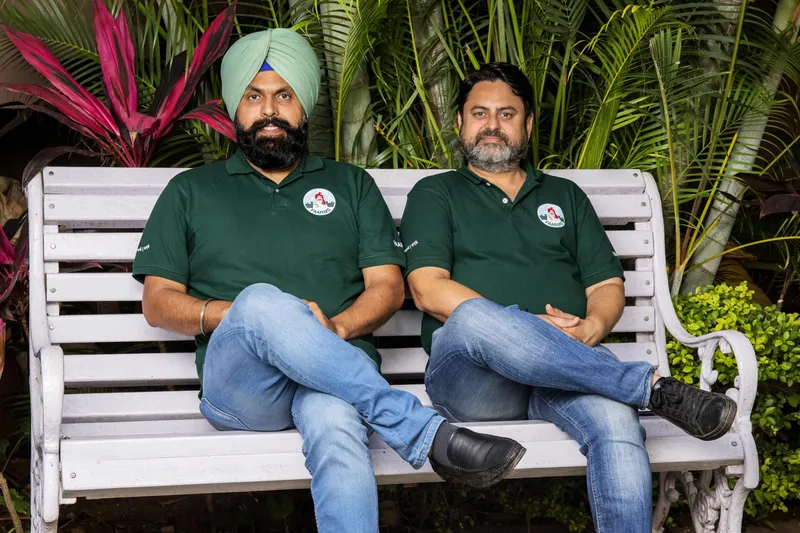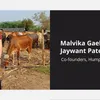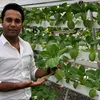How agritech platform FAARMS impacted the lives of 70,000 farmers in one year
Apart from collaborating with farmers, Bengaluru-based agritech startup FAARMS is also working with rural women who constitute 71 percent of livestock farmers in the country.
Sudesh Devi is a dairy farmer from Jind in Haryana. For over 20 years, she has been one of the key breadwinners in her family and many in her village look to her for advice on how to tend to their livestock. Like many dairy farmers across the country, Sudesh Devi also fed her animals traditional fodder derived from bran, millets, and pulses like khal, chokar, channa, and chunni.
Last year, she was able to access Golden Channa Churi, a better quality feed courtesy digital agritech platform . The change in feed resulted in a two-litre increase in milk production per animal, which earned Sudesh Devi and her family an additional Rs 20,000 a year.
“This is a significant savings for small-holding farmers and can make a difference to their standard of living,” says Alok Duggal, Co-founder and COO of FAARMS, which delivers the complete range of products and services such as seeds, fertilisers, pesticides, animal feed right to the farmers’ doorsteps.

Women constitute 71 percent of the labour force in livestock farming in India
Alok and Taranbir Singh, Co-founder and CEO, FAARMS, first met when they worked in the rural banking sector, and decided to create a platform that would solve the problems that farmers faced in their daily lives.
“We both spent nearly 15 years in the farming sector. I moved on to work in the supply chain, while Taranbir continued to work in the farming sector. At one point, we realised that we needed to create a comprehensive ecosystem that goes beyond technology, beyond distribution, and offers a simple, yet comprehensive solution for farmers,” says Alok, adding that the first big task was gaining the farmers’ trust. This was a big challenge as the farmers had become used to getting spurious or wrong products, and facing delays in delivery.
FAARMS was launched in July 2020. The startup, having a pictorial and multilingual app, as well as a website-enabled platform, is not only a one-stop solution for farming supplies, it also offers crop-related advice and creates a market for farmers to sell their harvest. There are also plans to provide easy access to equipment and credit.
“Animal feed is in high demand because India has the world's largest livestock population. Yet, it is one of the most ignored especially in terms of distribution on the ground. So we thought that if we are able to deliver the right product to the right household we would be able to gain their confidence,” says Alok, adding that with high acceptance from the farmers, this became the backbone of their entire ecosystem.
“FAARMS is also creating financial inclusion for farmers with insurance, microfinance, e-retail, and healthcare. Our aim is to double India’s farmers’ incomes by 2024. We are like an Amazon for India’s farming community, giving them access to the best brands and critical crop-specific advice in the palm of their hands,” says Alok.
Starting up amidst a pandemic
During the lockdown, supply chains across the globe were severely impacted.
“Agriculture was one of the sectors that had to keep going for the farmers to produce food, and the same was the case with livestock. We thought it would be a good time to initiate a business that would also have a social element,” says Alok, who worked on the ground with his team to convince farmers to try their product.
“Forty people, myself included, got COVID-19 in different states, working and delivering products every day. However, the success we gained out of it gave us all a lot of confidence. And we have never looked back since,” he adds.
To ensure familiarity and ease of using the platform, FAARMS deployed relationship managers on the ground who acted as brand ambassadors to host events and create awareness about using a digital platform.
Alok says trust was built gradually, starting with farmers ordering one product and then a second once they received exactly what they had ordered. Today, 75 percent of their clientele are repeat customers.
Empowering women
One of the key focus areas for FAARMS is the transformation of the dairy sector. While India is the world’s largest producer of milk, there are several issues with production and supply.
“FAARMS is trying to fix this by delivering quality feed that yields a higher production of better-quality milk, resulting in an increase in dairy farmers’ income,” says Alok, adding that the improved feed has also led to better animal health and well-being.
Over the past year, 60 percent of dairy farmers from 14 villages in Kota, Rajasthan, have reported an increase of 16 percent in their average income and women dairy farmers from 10 villages of Bareilly, UP, have reported an increase of 25 percent in their average income.
An additional benefit has been the impact that better livestock health and increased yield have had on the economic empowerment of women.
“Not many people know that women lead practices like feeding livestock, breeding and calving, and management of dairy animals. They constitute 71 percent of the labour force in livestock farming,” Alok says.

Taranbir Singh and Alok Duggal (right) co-founded FAARMS in July 2021 to deliver a complete range of agri products and services right to farmers’ doorsteps.
He says when the representatives would deliver the supplies, it was the women who would make the payments and place the orders and manage the supplies as the husbands were out in the fields.
“With higher yields and an increase in income, women were also able to invest more in running their own households and improve their families’ nutritional and other needs,” says Alok, adding that despite their contribution, rural women’s contribution to the economy is rarely reflected in national statistics.
Future plans
Over the past year, FAARMS has expanded its operations to seven states—Haryana, Punjab, Uttarakhand, Uttar Pradesh, Bihar, Rajasthan, and Madhya Pradesh—in 80 clusters, working with over 70,000 farmers.
“We have plans to expand to a further six states and even come to the South,” says Alok, explaining that growth will be both horizontal and vertical, as they are planning to expand to include fruit and spice cultivators.
Looking to the future, Alok says they want to keep things simple while creating a complete ecosystem at the grassroots level.
“This is a simple subject so we are not looking to create complex solutions. We want to build a complete ecosystem that gives the farmers everything they need from farming supplies to financing or cattle and tractor insurance,” says Alok.
FAARMS has also tied up with all seven state agricultural universities, to transfer the latest knowledge to the farmers in their own language via the platform.
“As part of a long-term goal, we will look at other attributes like output and buying produce from the farmers. But for now, we want to do one thing right at a time and take that impact to at least 15 states across the country,” Alok says.
Edited by Teja Lele








